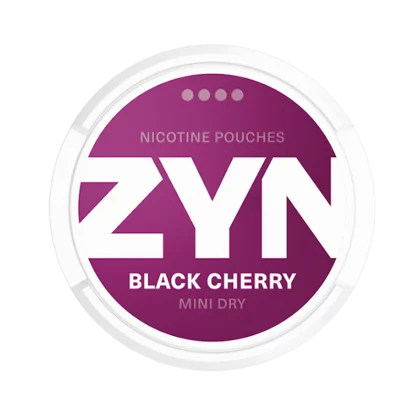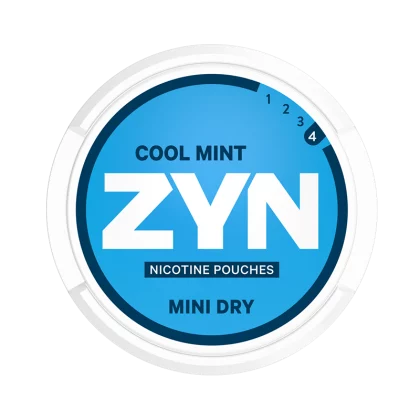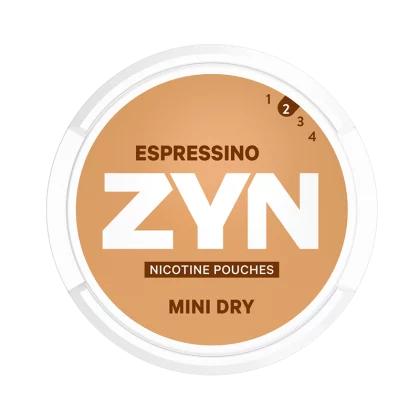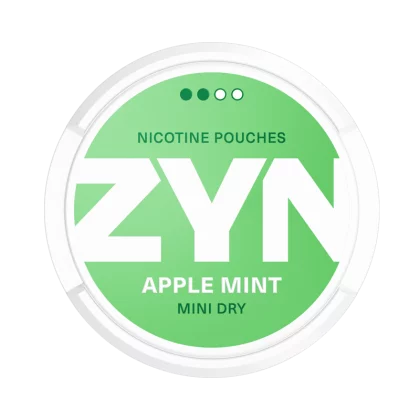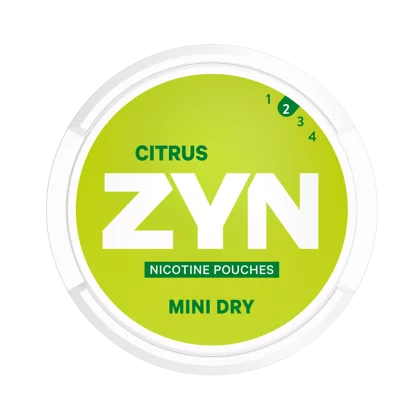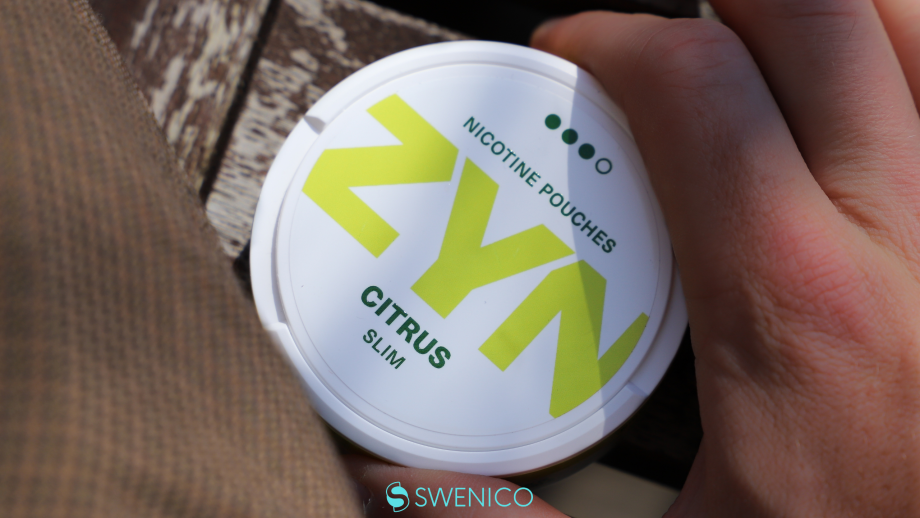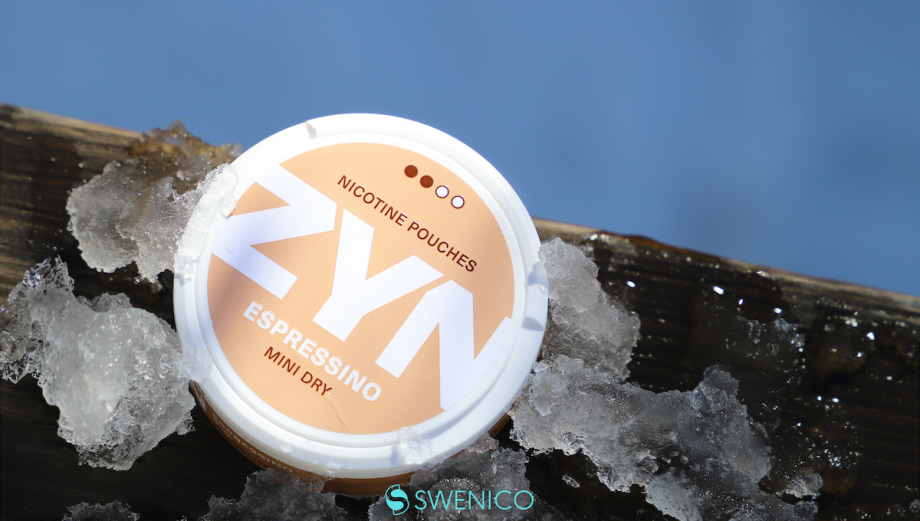Nicotine Pouches are a relatively new product on the market, only beginning to appear in around 2015 to 2016. But whilst it is a relatively new product, it has surged in popularity over the last couple of years as a less harmful alternative to traditional nicotine and tobacco products.
Like with all new products, there are lots of questions from people who are looking to get a better understanding of their effects, what they are about, and how they work. One of these questions is whether or not nicotine pouches stain your teeth.
In this article, we will therefore dive deep into this topic and provide you with all the information you need surrounding this question.
What are Nicotine Pouches?
Nicotine Pouches, also known as all-white snus or nicopods are small pouches that are placed under the upper lip. Once there, they provide a slow release of nicotine via the oral mucous (known as mucous membrane). This provides a smoke-free and tobacco-free nicotine experience that is completely discreet and leaves your hands free. For this reason, nicotine pouches can be used anytime and anywhere, making them one of the most convenient nicotine pouches on the market.
Nicotine pouches are available in a vast selection of flavor, formats, and nicotine strengths to cater to all tastes and preferences.

Background
To fully understand the key question of this article, we need to go back to the very beginning of when nicotine pouches were first launched on the market.
Nicotine Pouches were first released on the market in around 2015 and technically developed and invented in Sweden. The fact that Sweden is the birthplace is not that strange. As a matter of fact, Swedes have been using a product called snus for centuries and its use is very widespread within the population. A study conducted by the Swedish Public Health Agency found the following:
The number of daily users of snus who uses snus every day differs between women and men. In 2022, 20 percent of men and seven percent of women stated that they use snus daily. Daily snus use has increased among young people in recent years, the clearest increase is seen among women. In the youngest age group (16-29 years), the percentage of women who stated daily use of snus use has increased from three percent in 2018 to 12 percent in 2022.
It’s important to point out that the above statistics include both the use of tobacco snus and nicotine pouches, and the dramatic increase of use amongst women can be attributed to nicotine pouches, not tobacco snus.
In relation to the use solely of tobacco snus, the study found the following:
The use of snus, daily or occasionally, is most common among men in all age groups. The highest percentage who use tobacco snus is in the age groups 30-44 and 45-64 years.
The below graph shows the proportion (percentage) of people aged 16-84 who reported daily or occasional use of tobacco snus, divided by age and gender.

Source: The Public Health Agency of Sweden
Now, what does all of this have to do with the main question? The answer is, quite a bit actually.
As the data clearly indicates, the use of tobacco snus amongst the Swedish population, especially amongst men is quite high. And it has been so for a long time.
If you are unfamiliar with tobacco snus, describing it is actually very simply. Snus is identical to nicotine pouches, with the different being that the pouches contain tobacco, not plant fibers. They are used in the exact same way and their purpose remains the same.
Now, there is one issue with snus that many users are concerned about, namely that they discolor the teeth. Tobacco is brown so naturally, the use of snus will discolor a user’s teeth over time. Over the years, manufacturers of snus have continued to innovate and improve their products to better cater to the wants and needs of the market.
One of the pain points that manufacturers started looking at was to solve an issue that many consumers had – namely that they discolored the teeth.
The first step to this was not straight away to launch the nicotine pouch. Instead, manufacturers looked at how they could create a tobacco snus that offered the same experience but without discoloring the teeth. In 2015, the very first such product was released, known as Epok. This product was a tobacco snus but contained washed tobacco which made the pouches all-white. This product was widely promoted as a solution to the problem many users of snus experience and therefore, the slogan that the company used was ”Does not discolor your teeth”.
In the following few years, manufacturers realized that they could create a product without using any tobacco at all. The result was all-white pouches that offered the same experience.
The bottom line of all of this is that one of the reasons why nicotine pouches came about in the first place is to solve an issue that many users of snus experienced, namely that they stain the teeth.
Do nicotine pouches stain your teeth?
The short answer to this question is in principle no. Of course, most things that you put into your mouth can in theory discolor your teeth but since nicotine pouches are completely white, there limited risk that they will discolor your teeth.
Now, it’s worth pointing out that there are some nicotine pouches on the market that are not completely white and may have a certain hue to them. In these cases, it can not entirely be ruled out that they may have some effect on your teeth over prolonged periods of use. However, regardless of the type of nicotine pouch, it’s safe to say that compared to tobacco snus, nicotine pouches certainly achieve their purpose in this particular regard.
The conclusions from most manufacturers of nicotine pouches is that they do not, in general, stain the teeth. However as stated above, it cannot entirely be ruled out that some specific ingredients, predominantly certain flavorings, may cause minimal levels of staining of the teeth.
As an example, Swave, a brand of nicotine pouches states the following:
”It cannot be completely ruled out that there may be a small risk that SWAVE may cause discoloration of teeth in individuals.”
One reason for this statement could be that some of Swave’s pouches are not entirely white and has a slight hue to them. Another could be to avoid making guarantees that they can be held responsible for.
Oral Health
The use of oral nicotine pouches is sometimes associated with things like tooth decay or oral cancer. However, it’s important to note that not all products are created equal and we must therefore distinguish between the different products on the market.
When it comes to Swedish tobacco snus, manufacturers were previously required to add the text ”this product causes oral cancer”
In 2021, Sara Skyttedal, a Swedish Member of the European Parliament stated the following:
”An article published in the Lancet stated that ‘at this time, existing evidence does not support attributing burden to snus or similar smokeless tobacco products [source, p. 1405]
Other studies point to similar results. One study, published in May 2020 by SAGE journals, stated that ‘snus use does not appear to be implicated in the development of oral cancer in men’. [source]
If you read available cancer research, there is actually no study that points to a direct link between cancer and snus. […] Snus is a very specific product, so it cannot be compared to other oral tobacco products.”
Furthermore, Swedish Match, the largest manufacturer of snus states the following:
”Snus does not seem to increase the risk of general tooth loss (periodontitis). Epidemiological data do not show any relationship between snus and severe dysplastic lesions of the oral mucosa or precancerous effects on the oral cavity.”
It’s important to note that these studies focus specifically on Swedish Tobacco snus and not nicotine pouches. However, since nicotine pouches are free from tobacco and only contain nicotine, we could speculate that the effects of nicotine pouches would be even lower seeing that they are free from tobacco, which in some cases may potentially contain some levels (albeit lower than the required threshold) of potentially carcinogenic substances).
Since nicotine pouches are a relatively new product in comparison, a limited number of studies have been conducted in this particular area. We therefore need more data to better understand the oral effects specifically from the use of nicotine pouches.
One of the reasons snus and nicotine pouches are sometimes associated with things like tooth decay or oral cancer may have to do with the association of completely different products like dip, chewing tobacco, or tobacco products as a whole (including cigarettes). However, these products are not the same and conclusions cannot automatically be drawn across all of them.
In fact, Swedish Match states the following:
”In a recently published cross-sectional study, the relationship between tobacco use and the risk of periodontal disease (periodontitis) was investigated. Active use of snus showed no statistically significant association with any form of periodontal disease compared to non-tobacco use. Smoking, on the other hand, is a risk factor for periodontal disease (Wickholm et al., 2004).”
The Role of Oral Hygiene and bottom line
The bottom line is that in general, and for the most part, the answer to this question is no, nicotine pouches do not stain the teeth. Traditional tobacco snus, however, is known to cause discoloration of the teeth due to the use of tobacco and their brown color.
The fact that nicotine pouches do not stain the teeth is an important reason why many users of traditional snus, in particular in Scandinavia, have shifted to nicotine pouches.
But regardless of their stain-free nature, it’s still advised to maintain good oral hygiene when using nicotine pouches. Good oral hygiene is the cornerstone of a healthy mouth. It is the primary defense against tooth discoloration and various oral health issues. Regular and correct brushing, flossing, and dental check-ups can help to remove plaque and tartar, prevent tooth decay, and maintain the natural whiteness of your teeth.
Popular nicotine pouches
-
ZYN Cool Mint Mini Dry Normal 3mgPrice is hidden
-
VELO Freeze MAXPrice is hidden
-
ZYN Mini Black Cherry 6 mgPrice is hidden
-
ZYN Cool Mint Mini Dry Extra StrongPrice is hidden
-
ZYN Espressino Mini Dry Normal 3mgPrice is hidden
-
Zafari Desert Mint 4mgPrice is hidden
-
VELO Ice Cool Mint Strong SlimPrice is hidden
-
ZYN Apple Mint Mini Dry 3mgPrice is hidden
-
ZYN Citrus Mini Dry Normal 3mgPrice is hidden




